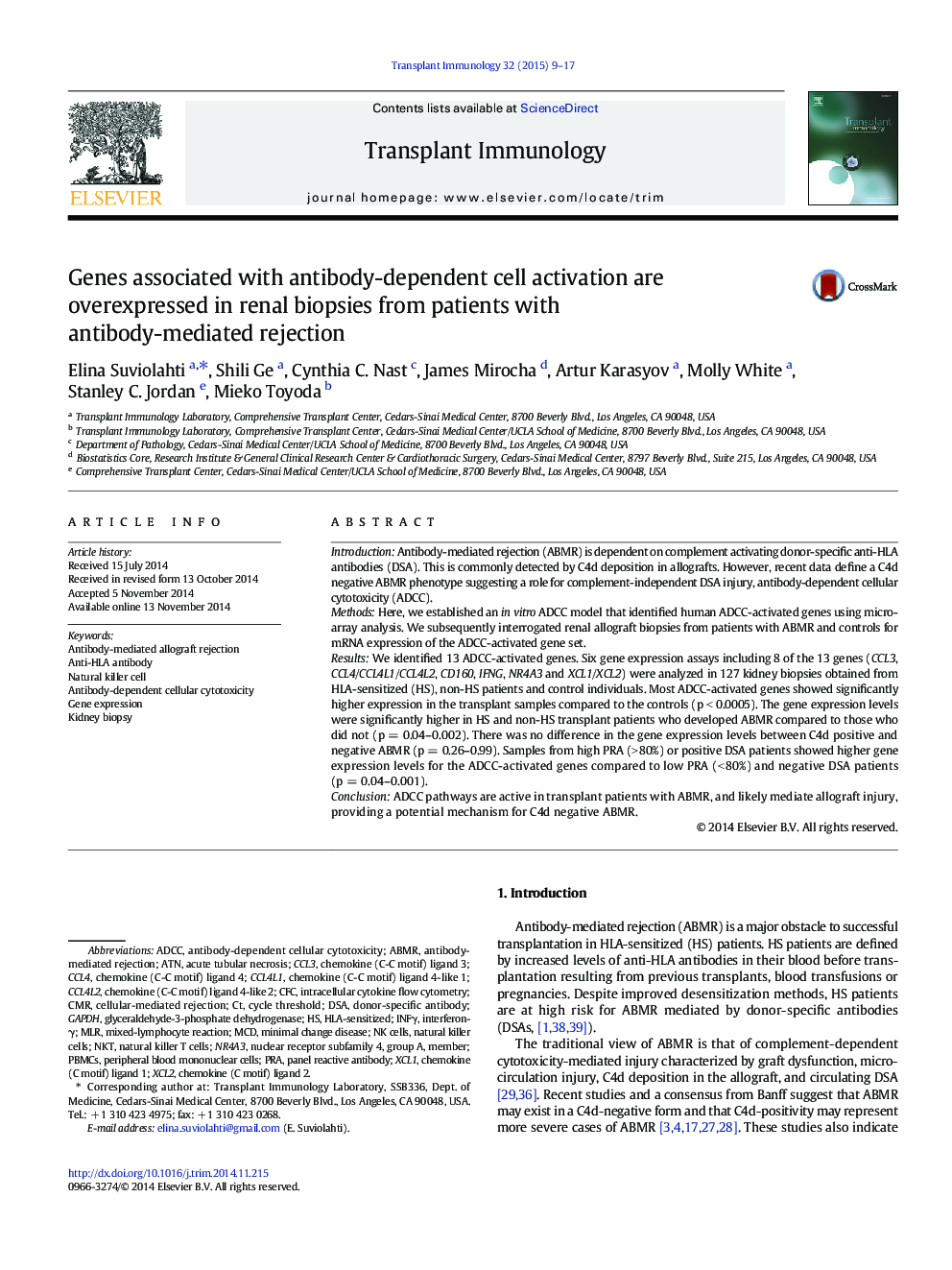| Article ID | Journal | Published Year | Pages | File Type |
|---|---|---|---|---|
| 3392035 | Transplant Immunology | 2015 | 9 Pages |
•An ADCC-activated gene set was identified using an in vitro ADCC model and microarray analysis.•These genes showed higher expression among the transplant samples vs. non-transplant controls.•The ADCC-activated gene expression was elevated in both C4d positive and negative ABMRs.•High anti-HLA antibody levels were associated with high expression of the ADCC-activated genes.•This suggests ADCC involvement in ABMR, providing a potential mechanism for C4d negative ABMR.
IntroductionAntibody-mediated rejection (ABMR) is dependent on complement activating donor-specific anti-HLA antibodies (DSA). This is commonly detected by C4d deposition in allografts. However, recent data define a C4d negative ABMR phenotype suggesting a role for complement-independent DSA injury, antibody-dependent cellular cytotoxicity (ADCC).MethodsHere, we established an in vitro ADCC model that identified human ADCC-activated genes using microarray analysis. We subsequently interrogated renal allograft biopsies from patients with ABMR and controls for mRNA expression of the ADCC-activated gene set.ResultsWe identified 13 ADCC-activated genes. Six gene expression assays including 8 of the 13 genes (CCL3, CCL4/CCL4L1/CCL4L2, CD160, IFNG, NR4A3 and XCL1/XCL2) were analyzed in 127 kidney biopsies obtained from HLA-sensitized (HS), non-HS patients and control individuals. Most ADCC-activated genes showed significantly higher expression in the transplant samples compared to the controls (p < 0.0005). The gene expression levels were significantly higher in HS and non-HS transplant patients who developed ABMR compared to those who did not (p = 0.04–0.002). There was no difference in the gene expression levels between C4d positive and negative ABMR (p = 0.26–0.99). Samples from high PRA (> 80%) or positive DSA patients showed higher gene expression levels for the ADCC-activated genes compared to low PRA (< 80%) and negative DSA patients (p = 0.04–0.001).ConclusionADCC pathways are active in transplant patients with ABMR, and likely mediate allograft injury, providing a potential mechanism for C4d negative ABMR.
